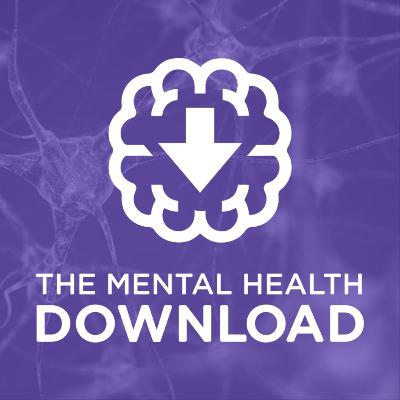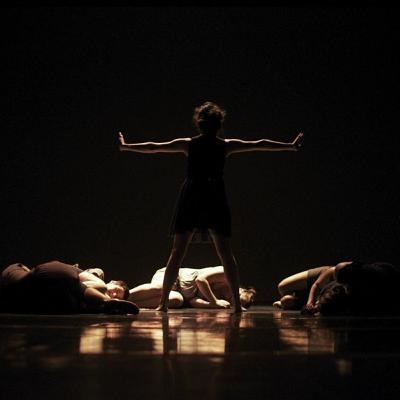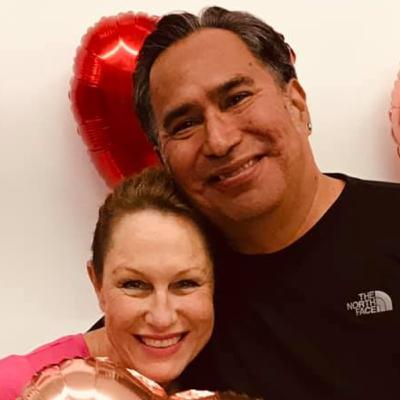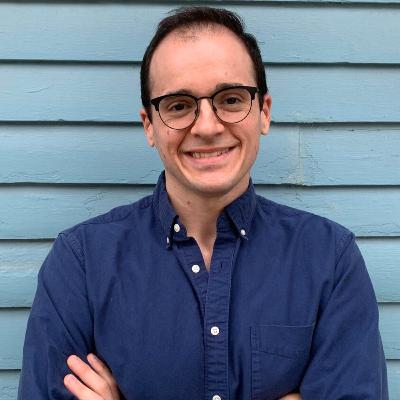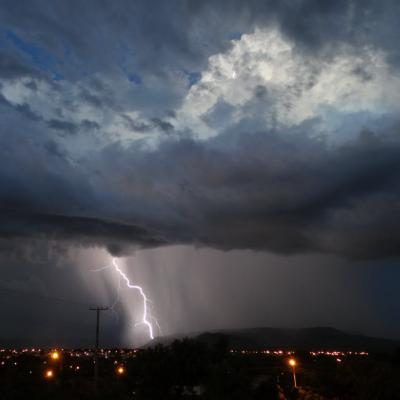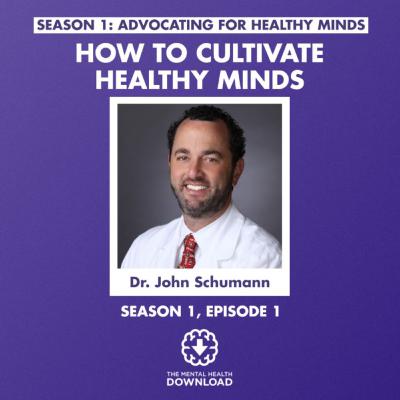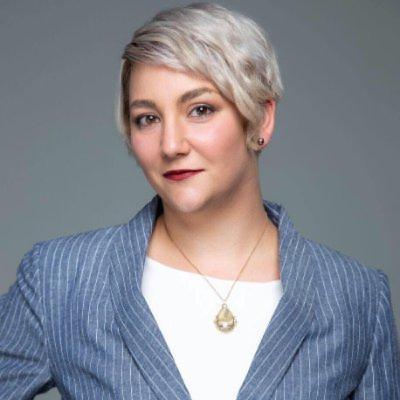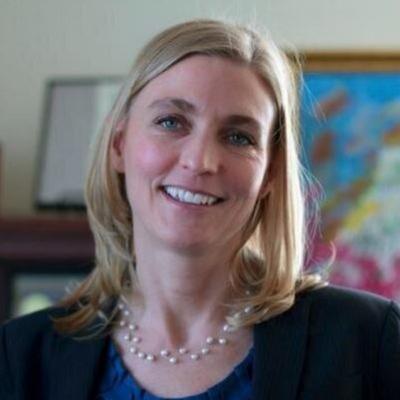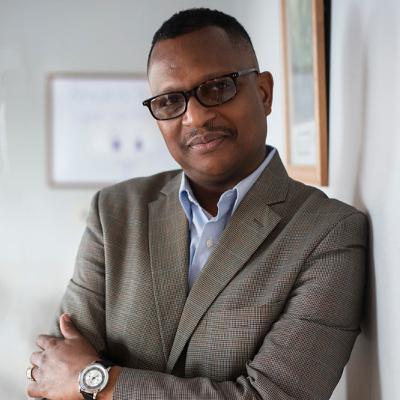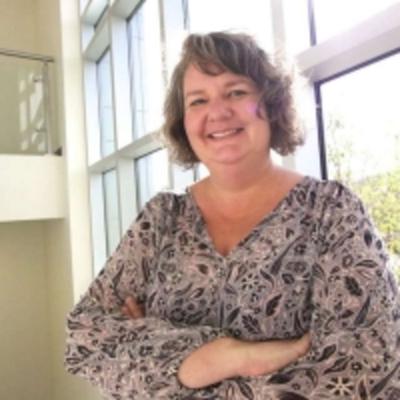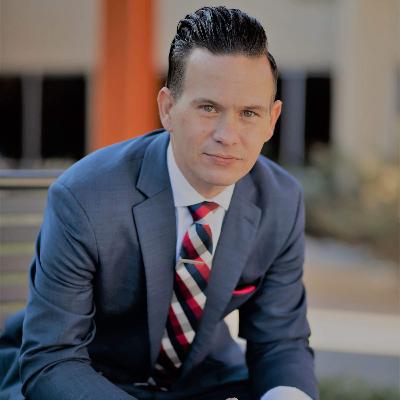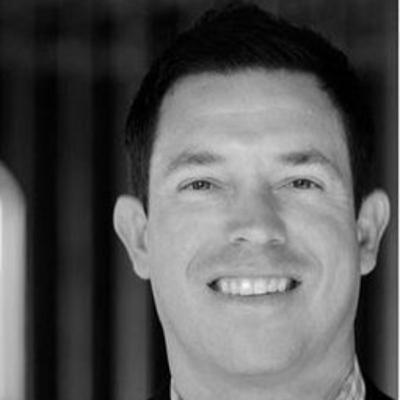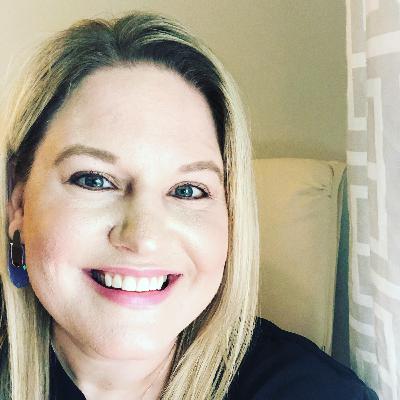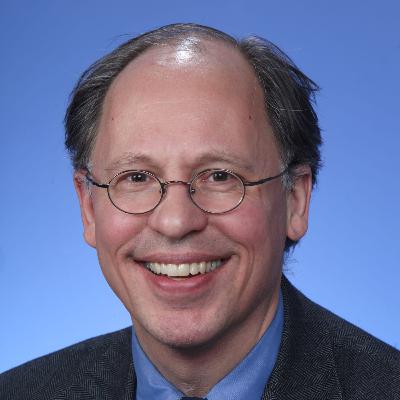Discover Mental Health Download: Exploring Mental Illness, Suicide, Homelessness and Incarceration
Mental Health Download: Exploring Mental Illness, Suicide, Homelessness and Incarceration

Mental Health Download: Exploring Mental Illness, Suicide, Homelessness and Incarceration
Author: MHAOK
Subscribed: 91Played: 1,625Subscribe
Share
© MHAOK
Description
Mental Health Association Oklahoma created The Mental Health Download podcast to share stories each week about mental illness, homelessness, incarceration and suicide, and how each can impact our lives in a profound way.
Mental health affects everyone, yet the social stigma attached to mental health issues keeps so many of our family members, friends, colleagues and neighbors silent.
Why are we so afraid to talk about these issues?
Each week, our host Adi McCasland invites guests to share how mental illness, suicide, homelessness and incarceration have affected their work or lives.
Mental health affects everyone, yet the social stigma attached to mental health issues keeps so many of our family members, friends, colleagues and neighbors silent.
Why are we so afraid to talk about these issues?
Each week, our host Adi McCasland invites guests to share how mental illness, suicide, homelessness and incarceration have affected their work or lives.
225 Episodes
Reverse
Today, I am talking with Julie Leiber and Emily McPherson, Mental Health Policy Fellows at Healthy Minds Policy Initiative.
Emily is researching methamphetamine overdose and harm reduction, and Julie has been focusing on programs of assertive community treatment. Together, they were also Zarrow Mental Health Symposium presenters at last year’s event, New Horizons in Brain Science, during which they used Tulsa, Oklahoma as a case study. Their presentation explored treatment models and community partnerships that addressed rising rates of methamphetamine use. It also spoke to how harm reduction and contingency management show how pathways in the brain are being used and strengthened to reduce overdose deaths.
"What we have, because brains wire in response to what happens between us - between me and another person, between me and my community, between me and my place of work - the locus of the dysfunction is not necessarily only in our brain. It may not even be mainly in our brain it's between us. And when we can heal what's sick between us, then the brain actually has a chance to use the biological things we're giving it. And the psychological tools that we're giving it to actually change. The implications of a bio-psycho-social disease is, if you are only treating the biological and psychological, then the unmet social, relational needs are like a weight or like an anchor and the boat can't move. We can't move to better waters because we're being weighed down. The system is constantly encountering more and more challenges to it."
On today’s episode, we interview Dr. Rachel Wurzman. Dr. Wurzman will be a keynote at this year’s virtual Zarrow Mental Health Symposium. She is the Director of Science for SeekHealing, a non-profit that is providing social connection-based interventions to make individuals and communities more resilient to opioid addiction and overdoses. Her ongoing research addresses the neuroscience of social health and how the biopsychosocial spectrum has for addiction treatment and policy.
The theme for this year’s Symposium is Cultivating Community Connections and is coming up September 29 - October 1. You can register to attend the event at www.zarrowsymposium.org
We’d like to thank two of our Sponsors - the Maxine and Jack Zarrow Foundation and the George Kaiser Family Foundation - for their ongoing support of the Zarrow Mental Health Symposium.
"And I think - going back to the community and finding out what their needs are - you just mentioned cultural humility and I'd like to define cultural humility as the practice of not knowing because we're professionals and we know a lot of things and rarely do we focus on what we don't know. But we have to engage in this quest for learning more about the communities that we serve because we get caught up in our own biases."
On today’s episode, we’re excited to be in conversation with Dr. Rosemarie Allen. Dr. Allen will be a keynote at this year’s virtual Zarrow Mental Health Symposium. Dr. Rosemarie Allen has been a leader in early childhood education for nearly 40 years and her life’s work has focused on ensuring children have access to high quality early childhood programs that are developmentally and culturally appropriate. As a national expert on implicit bias and culturally responsive practices, Rosemarie has been a respected voice on equitable youth and family-focused community support and response throughout the pandemic.
The theme for this year’s Symposium is Cultivating Community Connections and is coming up September 29 - October 1. You can register to attend the event at www.zarrowsymposium.org
We’d like to thank two of our Sponsors - Ascension St. John and the Public Health Institute of Oklahoma - for their generous support of this year’s Symposium.
"Don't take it personally when people don't make things accessible for you. It's not that they're trying to do it with any menace. It's just that people don't understand. And, unfortunately, even though it's tiring and it's exhausting, you do have to educate. And, hopefully, by educating, we can make the world a more accessible and better place for everyone." -- Jenna Adair, MHAOK student intern who is legally blind
On today’s episode, we’ll be talking with Jenna Adair and Dr. Jedediah Bragg about helping people with visual impairments connect to mental health treatment services.
RESOURCES
https://webaim.org/techniques/forms/ Creating accessible forms
nfb.org Blindness info/phone list/resources
nfbok.org Oklahoma resource for blind
convert@robobraille.org document converter
https://www.ada.gov/ta_titleiii.html#gen Small business documents that provide guidance
https://www.washington.edu/accessibility/documents/word/ Guidelines for making accessible documents
https://www.abledocs.com/en?gclid=Cj0KCQjwzYGGBhCTARIsAHdMTQyDUkuVHa9HYTbHaUlSTneYqWLH_Z9mhb39Yc3y_yO8yq0f2F7Io4QaAtHGEALw_wcB Service to ensure accessibility of docs.
On today's episode, we're spotlighting the Tulsa Ballet Studio's production of "Between US 2 - Rewind." Based on true events, it captures the reality of show creator Nina Madsen Puckett’s struggle with mental illness, and incorporates author Francesco Granieri’s experience as a family member of someone with mental illness (as portrayed in his book, “Pavarotti and Pancakes”.)
Get all the show details here: https://www.eventbrite.com/e/between-us-2-rewind-tickets-148685051993
On this episode, special guest host Jane Mudgett talks with Mark Wilson & Alison Anthony about Mark's addiction to alcohol, how their family helped Mark in his recovery, and the power of yoga.
To celebrate Mental Health Awareness Month, Jacob Beaumont, of Mental Health Association Oklahoma, offers you this gratitude meditation.
In the meditation, Jacob said, "The great news is that gratitude, much like mindfulness, is a muscle. The more you practice it, the stronger it gets, and the easier it becomes to see the good things in our lives -- both big and small."
It's severe weather season and some people may be dealing with severe weather anxiety. Today on the podcast, Jon Haverfield talks to Steve Piltz, who is the meteorologist in charge of the National Weather Service. Jon and Steve give us ways we can cope and deal with severe weather anxiety and make it through the tornado season that we're currently in.
Welcome everyone to the first Mental Health Download Podcast of this 2021 season. I'm Matt Gleason. And today, my co-host is my dear friend Jane Mudgett. We are so excited to be kicking off the 2021 season focused on cultivating healthy minds with Dr. John Schumann.
He is President of OU-Tulsa and also holds the Gussman Endowed Chair in Internal Medicine within the OU-TU School of Community Medicine.
Dr. Schumann has authored the blog GlassHospital since 2010, writing monthly posts aimed at demystifying medicine and bringing transparency to health care and policy for lay audiences. He has also written for national publications such as The Atlantic, Slate, Reader’s Digest, and NPR’s health blog, Shots.
He is also the developer, co-producer and host of the StudioTulsa program “Medical Mondays” on Tulsa’s local NPR station, KWGS 89.5-FM. His weekly show explores health care and the human condition. He has also contributed to the national NPR radio programs, “Marketplace” and “All Things Considered.”
OK, let’s get the conversation started. The Mental Health Download starts … now.
P.S. Thanks to our friend Lucas Oswalt for providing all the music for this year's season. Hear more from Lucas at https://lucasoswalt.bandcamp.com/
Oh, and watch this episode on Youtube at mhaok.org/podcast.
On this week's episode of the Mental Health Download from the nonprofit Mental Health Association Oklahoma, our guest is Colleen McCarty, She is policy counsel for Oklahomans for Criminal Justice Reform. Colleen talks with Whitney Cipolla, the Association's advocacy specialist, about criminal justice reform in this session of the Oklahoma legislature.
People can move from homelessness to housing and self-sufficiency and employment, to all kinds of possibilities in the future. We can't do any of this without our unique donors now or in 2021. I'm so proud and grateful to let them know how valuable they are to us and the impact that they're having on their community. -- Terri White
We’re celebrating the end of 2020 by reflecting on the bright side of an unprecedented year we are so glad is almost over. To celebrate, Kristy Sturgill, the Association’s director of Marketing, talks with the Association's CEO, Terri White, about just a few of the ways our supporters' compassion and generosity made a difference during the pandemic.
Our guest is Reggie Ivey, Chief Operating Officer of the Tulsa City-County Health Department. He talks with Mental Health Association Oklahoma's Rebecca Hubbard about self-care for his staff during a time of pandemic and the holidays.
"I am so proud to be a social worker and I love to be a social worker. It's a profession where you do make a difference in the lives of people. So it's work that you can feel good about."
— Julie E. Miller-Cribbs, MSW, PhD
OU's Anne & Henry Zarrow School of Social Work
On today's episode, we talk with Julie E. Miller-Cribbs, MSW, PhD. She is Director & Oklahoma Medicaid Endowed Professor in Mental Health for The University of Oklahoma Anne & Henry Zarrow School of Social Work. We talk about what social work students are learning during the pandemic and what the world will be like when they graduate.
Today, our guest on the Mental Health Download Podcast is Tulsan Lindsay Benson M.S., LPC. She has been working as a therapist for over 15 years. Most of her experience has been helping people with trauma. Her dog, Gus, died at age eight of cancer in 2012 and that experience sparked a desire in her to help others as they deal with pet loss. She completed a training through the Association for Pet-Loss and Bereavement in order to become a certified pet loss and bereavement therapist.
Below is a list of resources for Pet Loss Grief.
Books:
The Loss of a Pet by Wallace Sife Ph.D
Pet Loss- a Thoughtful Guide for Adults and Children by Herbert A Nieburg and Arlene Fischer
When Your Pet Dies by James Quackenbush
How to ROAR: Pet Loss Grief Recovery by Robin Jean Brown
Books for Children:
Ages 3 and up
The Goodbye Book by Todd Parr
The Rainbow Bridge. A Dog's Story by Judith Kristen
Ages 5 and up
Paw Prints in the Stars. A Farewell and Journal for a Beloved Pet by Warren Hanson
The Tenth Good Thing about Barney by Judith Viorst and Erik Bleguad
Podcast:
The Pet Loss Podcast on Stitcher
Blog:
Griefhealingblog.com/petloss
Websites:
The Association for Pet Loss and Bereavement www.aplb.org
www.petlosshelp.org
Free Online Support Groups:
The Association for Pet Loss and Bereavement www.aplb.org
Local Resources
www.GUSpetloss.org
"A couple of tips or advice I would give is, No. 1, don't lose hope. Continue to battle, continue to fight, continue to take the steps to get to where you want to go." — Dustin Bailey
------------------
On today’s episode, we’re celebrating 12&12 Day which happens each year on December 12.
Our guests in the first part of the show include Tricia Mason, Chief Operating Officer of 12&12, and Jen Kerckhoff, an amazing 12&12 volunteer who created 12&12 Day a few years ago.
In the second part of the show, Jen will join me as we talk with two of the 12 faces of 12&12 -- Teresa Knox and Dustin Bailey.
On today's episode, guest host Jane Mudgett interviews Weldon Bowman, of W Design, about a variety of ways to separate your work (and school) life from your home life to benefit your mental health during the pandemic.
Happy Thanksgiving! On this episode, Ashley Gunnells and Matt Gleason reflect on what they are thankful for the people Mental Health Association Oklahoma serves -- and the donors who make it all possible.
Prior to the Zarrow Symposium, I thought Milwaukee was pretty far along but Milwaukee and many other American communities can learn so much from the work underway in Oklahoma: racist historical trauma; indigenous historical trauma; white rural Okie dustbowl historical trauma. — John Schmid, journalist and historical trauma expert
***
On this episode, we talk with John Schmid, an award-winning writer from Milwaukee. John is a historical trauma expert who attended this year's Zarrow Mental Health Symposium.
For anyone that knows of a friend or an acquaintance that experienced a suicide loss in their life, if you are able, if you are emotionally and mentally capable, go and sit with that person and let them share their thoughts and feelings with you about it. And listen without judgment because I can guarantee that is the best gift you can give to that person. —
Barbara Hathcock, Suicide Prevention Advocate
***
Today is International Survivors of Suicide Loss Day. To share her thoughts about this, we invited our friend Barbara Hathcock to talk about her late son and to offer tips to people who have also lost loved ones to suicide.
On today's episode, our friend Jane Mudgett interviews Jackie Ramage about the role a company's HR department plays in helping staff members deal with the anxiety and depression related to the pandemic and the state of the world. We also check-in with the Association's very own HR hero, Lindsay Whitworth, about her thoughts on EAPs.


